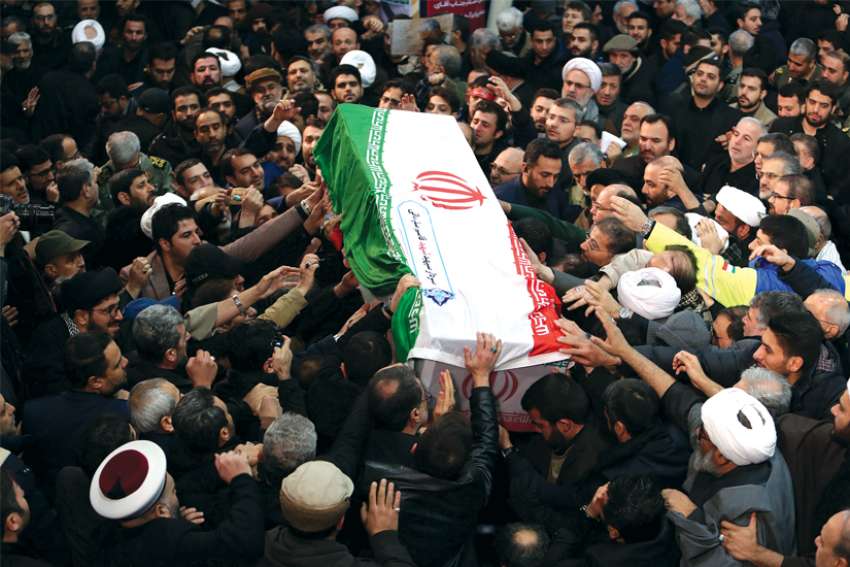“I’m assuming that there would probably be more refugees coming, or refugee claimants,” said Norbert Piche, director of the Jesuit Refugee Service of Canada. “Obviously with the way things are working right now, we can expect refugee claimants.”
Deacon Rudy Ovcjak, director of the Office for Refugees for the Archdiocese of Toronto, concurs with Piche’s assessment.
“Any increased instability unsettles the Christian community that remains in Iraq,” he said.
The two men were responding after Iran brought down Ukraine International Airlines Flight 752 with a missile fired when the civilian airliner was apparently mistakenly identified as a military target. All 176 people on board, including 57 Canadian citizens, were killed.
The Catholic Near East Welfare Association in Canada also expects recent events, including the American assassination of Iranian General Qassem Soleimani and its aftermath, to re-fuel an exodus of Christians from the region.
“Any escalation of war and conflict means bad news for the Christians,” CNEWA Canada executive director Carl Hétu said.
Since 2003 about 2.5 million Christians have left the Middle East due to a series of conflicts, beginning with the 2003 United States-led invasion of Iraq, then the Israeli war against Hezbollah in Lebanon in 2006, the Israel-Gaza war of 2008, another Gaza war in 2014, the Arab Spring uprisings, the subsequent war in Syria and the war to defeat ISIS, Hétu said.
“All of these conflicts since 2003 have resulted in only one thing — despair, pain and Christians leaving the Middle East,” he said.
Since 2018, efforts have been ongoing to rebuild towns and villages in northern Iraq and help Christians who had fled the region resettle in their former homes. The death of Soleimani and the downing of the civilian airliner threaten to put a chill into those efforts.
“The current tensions are threatening the serious fragility of the communities, which are tired of war and the tragic consequences of it,” said Archbishop Bashar Warda of Erbil in a statement. “They have continually suffered far too much and can no longer face an unknown future.
“They need the certainty, reassurance, hope and the belief that Iraq can be a peaceful country to live in rather than being victims and endless collateral damage.”
Calling Iraqis a “courageous people of hope,” he said it has been “a very challenging road to raise funds and international support” to “regain what we lost.”
Before the Americans killed Soleimani, young protesters in Baghdad were demanding a non-sectarian, secular government, free of corruption — an agenda that would make room for Iraq’s minorities, including Christians.
“The Iraqis have been suffering from anarchy, from invaders, from radicalism, from ISIS and then from Iranian semi-control of the country or United States control of the country — there’s interference from everybody,” said Hétu.
“People are tired, they’re hungry, they’re without jobs. They know the country has a lot of petroleum and they see the elites not doing much to ease their pain. So they’re in the streets.”
But the American killing of Soleimani has raised the profile of pro-Iranian, Shiite parties in Iraq and further divided Iraq along religious lines, to the detriment of Iraq’s Christian minority.
“Our director in Amman (Jordan), he was telling us that every week there are new families coming from Iraq — every week,” Hétu said.
“Let me tell you, there will be more now — especially now that some of the missiles have landed in Erbil where they (Christians) are all hiding.”


